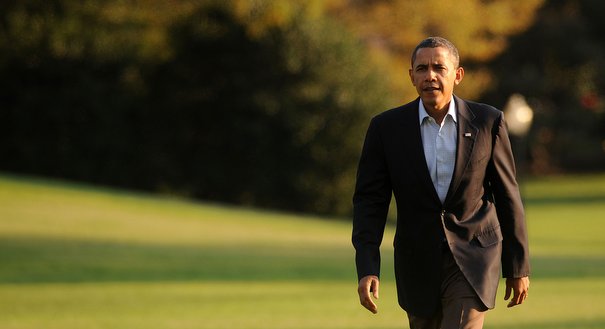John Judis
{
"authors": [
"John Judis"
],
"type": "legacyinthemedia",
"centerAffiliationAll": "",
"centers": [
"Carnegie Endowment for International Peace"
],
"collections": [],
"englishNewsletterAll": "",
"nonEnglishNewsletterAll": "",
"primaryCenter": "Carnegie Endowment for International Peace",
"programAffiliation": "",
"programs": [],
"projects": [],
"regions": [
"North America",
"United States"
],
"topics": [
"Political Reform",
"Foreign Policy"
]
}
Source: Getty
Firing Chuck Hagel Won’t Solve Obama’s Foreign Policy Problems
Hagel’s ouster had little to do with his handling of the major foreign policy issues. Instead, it stemmed from conflicts with National Security Advisor Susan Rice and a lack of confidence in his management skills at the Pentagon.
Source: New Republic
The New York Times, NBC News, and other news outlets have suggested that President Barack Obama fired Secretary of Defense Chuck Hagel because of doubts whether he could carry out the administration’s war against the Islamic State (IS). “Hagel resigns under pressure as global crises test Pentagon,” The New York Times declared. That presumably reflects what the White House is saying about Hagel’s departure. And if so, it amounts to scapegoating Hagel for the administration’s continued difficulties abroad.
As my colleague Julia Ioffe reports, Hagel’s ouster had little to do with his handling of the major foreign policy issues. Instead, it stemmed from conflicts with National Security Advisor Susan Rice and a lack of confidence, apparently well deserved, in his management skills at the Pentagon. Hagel himself had little effect on the major global crises the U.S. faced in the Middle East or the Ukraine. American foreign policy has been directed primarily from the White House; and as Obama was taking leave of Hagel on the White House lawn, these crises were, if anything, gathering strength.
In Vienna, Secretary of State John Kerry was announcing that the United States and Iran had failed to reach an agreement that would remove sanctions against Iran in exchange for its severely limiting its capability to produce nuclear weapons. The talks have now been extended seven months to July 1. The problem is that if the White House does reach an agreement with Iran then, it will almost certainly have to face concerted opposition from a Republican Senate and House, and possibly too from Democrats who share Israeli Prime Minister Benjamin Netanyahu’s opposition to an agreement that doesn’t totally dismantle Iran’s nuclear facilities.The president would not need Congress to ratify the deal. It is a multi-state agreement, not a treaty. And he could also waive the sanctions against Iran, as he has already done in part. But he can only suspend them for two years. He cannot end them permanently. That would require an act of Congress, and it’s very doubtful that he could get one given who will soon control the House and Senate and its foreign policy committees. Leading Republicans were already denouncing Obama and Secretary of State John Kerry for agreeing to another extension.
Obama is likely to bypass Congress entirely, but his inability to promise more than a temporary elimination of sanctions will weaken the American bargaining position. Writes legal expert Jack Goldsmith, “The bottom line, then, is that any deal struck by President Obama with Iran will probably appear to the Iranians to be, at best, short-term and tenuous. And so we can probably expect, at best, only a short-term and tenuous commitment from Iran in return.”
Then there’s Syria. The White House’s hints of a disagreement over IS has sent reporters, including me, scrambling to get copies of the memo about IS and Syria that Hagel sent Rice last month, but its contents remain secret. What is known about it—Hagel’s insistence that Obama clarify has stand against Syrian President Bashar al-Assad—reflects well, not poorly, on Hagel. The U.S. is currently sending warplanes against IS positions in Syria. As Hagel acknowledged in a press briefing, that indirectly benefits Assad. Obama insists that the U.S. still intends to aid the overthrow of Assad, but according to Syria expert Joshua Landis, the moderate forces the U.S. supports control at most five percent of the country, and the $500 million in military aid that the U.S. is giving them amounts to “chump change.” (The United States was spending $70-100 billion a year in Iraq during the war there.) There’s a disconnect, in other words, between what the administration says it is doing in Syria and what it is doing.
Similar doubts can be raised about administration policy in Iraq and Syria. Obama has promised to “destroy” IS in Iraq as well as Syria, but his strategy—consisting of air strikes and 3,000 advisors—is not designed to do so. It has succeeded so far in stopping IS’s advance on Baghdad and Erbil without rolling back its earlier advances. The United States is arming the Iraqi army, but the government has been unwilling or unable to do more than defend Shiite holdings. In Afghanistan, Obama has re-expanded the American role in fighting the Taliban. Here, too, as in Syria and Iraq, there is reason to doubt whether the modest means employed will achieve the desired military ends.
Obama’s Republican critics in Congress, of course, are calling for a massive increase in the means. Senator John McCain, who will take over the Armed Services Committee in January, has advocated sending troops to Iraq and Syria. But it may make more sense to reduce American ends in the region—to containing rather than destroying IS and other Islamist forces and to accepting some kind of de facto partition of Syria. The Middle East is witnessing the unraveling of nation-states that France and Britain artificially constructed after World War I, and the unraveling is occurring along religious, sectarian lines. Landis compares the unraveling to what happened to Europe from World War I through the 1990s. That process, too, involved awful bloodshed, ethnic cleansing, and even genocide. The United States can hope to prevent the worst excesses and protect the global stake in the region’s oil, but it cannot hope either to reverse the process or to divert the region, as the Bush administration tried to do, onto an American-style glide path toward secular democracy.
In his second term, Obama took a very important step in attempting to reach a rapprochement with Iran. A resumption of American diplomatic relations with Iran is essential to America playing a constructive, mediating role in the Middle East. It cannot hope for any kind of stability in Syria or Iraq without Iran’s participation. But that initiative now seems endangered. And on other fronts—in Syria, Israel and Palestine, Iraq, and the Ukraine—the administration has appeared to stumble. The administration may have good reason for wanting to replace Chuck Hagel, but those stumbles can’t be blamed on his tenure and cannot be righted by replacing him.
About the Author

Former Visiting Scholar
As a visiting scholar at Carnegie, Judis wrote The Folly of Empire: What George W. Bush Could Learn from Theodore Roosevelt and Woodrow Wilson.
- This Election Could be the Birth of a Trump-Sanders ConstituencyIn The Media
- Policy ChopsIn The Media
John Judis
Recent Work
Carnegie does not take institutional positions on public policy issues; the views represented herein are those of the author(s) and do not necessarily reflect the views of Carnegie, its staff, or its trustees.
More Work from Carnegie Endowment for International Peace
- The Gulf Monarchies Are Caught Between Iran’s Desperation and the U.S.’s RecklessnessCommentary
Only collective security can protect fragile economic models.
Andrew Leber
- Europe on Iran: Gone with the WindCommentary
Europe’s reaction to the war in Iran has been disunited and meek, a far cry from its previously leading role in diplomacy with Tehran. To avoid being condemned to the sidelines while escalation continues, Brussels needs to stand up for international law.
Pierre Vimont
- Lessons Learned from the Biden Administration’s Initial Efforts on Climate MigrationArticle
In 2021, the U.S. government began to consider how to address climate migration. The outcomes of that process offer useful takeaways for other governments.
Jennifer DeCesaro
- India Signs the Pax Silica—A Counter to Pax Sinica?Commentary
On the last day of the India AI Impact Summit, India signed Pax Silica, a U.S.-led declaration seemingly focused on semiconductors. While India’s accession to the same was not entirely unforeseen, becoming a signatory nation this quickly was not on the cards either.
Konark Bhandari
- What We Know About Drone Use in the Iran WarCommentary
Two experts discuss how drone technology is shaping yet another conflict and what the United States can learn from Ukraine.
Steve Feldstein, Dara Massicot










